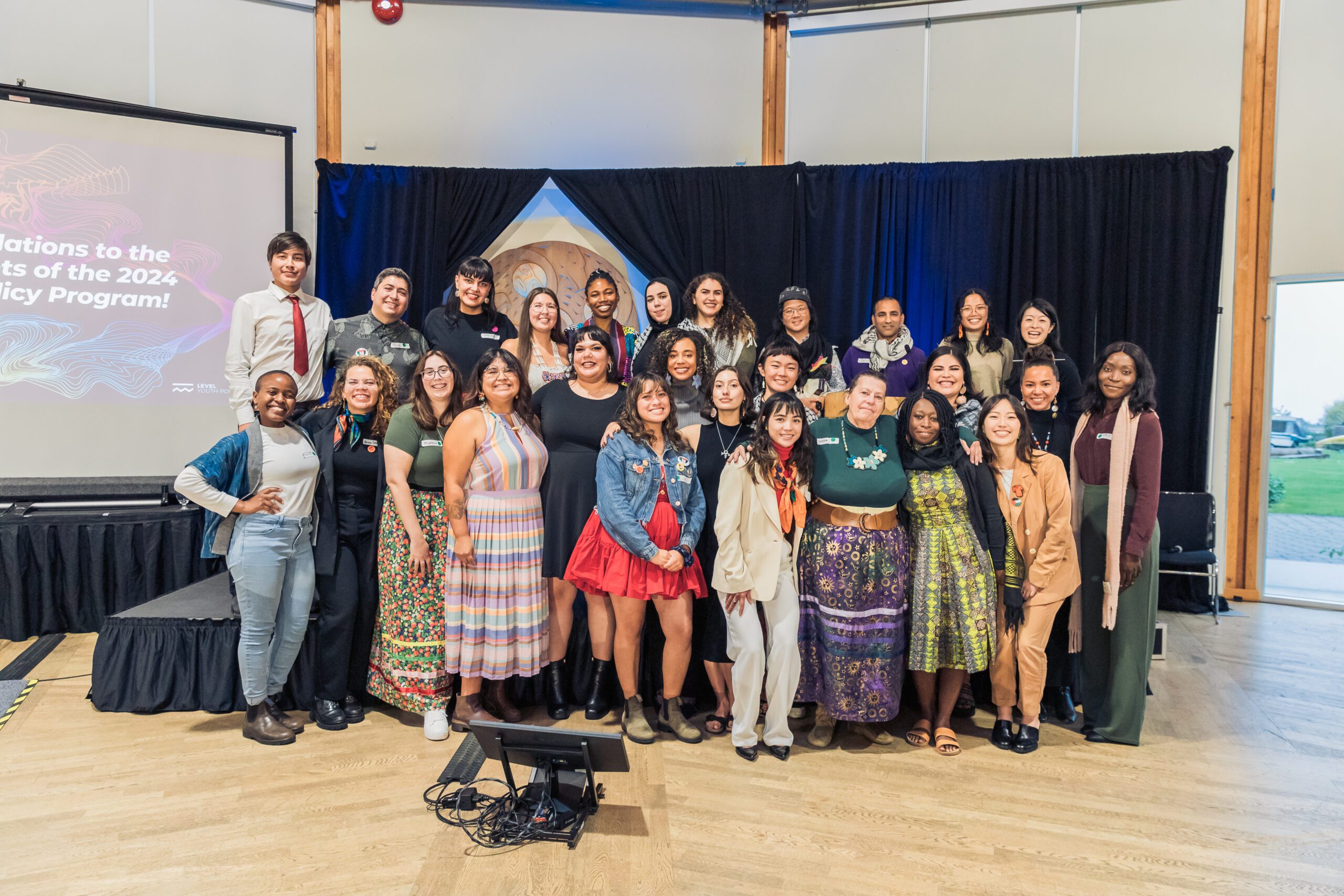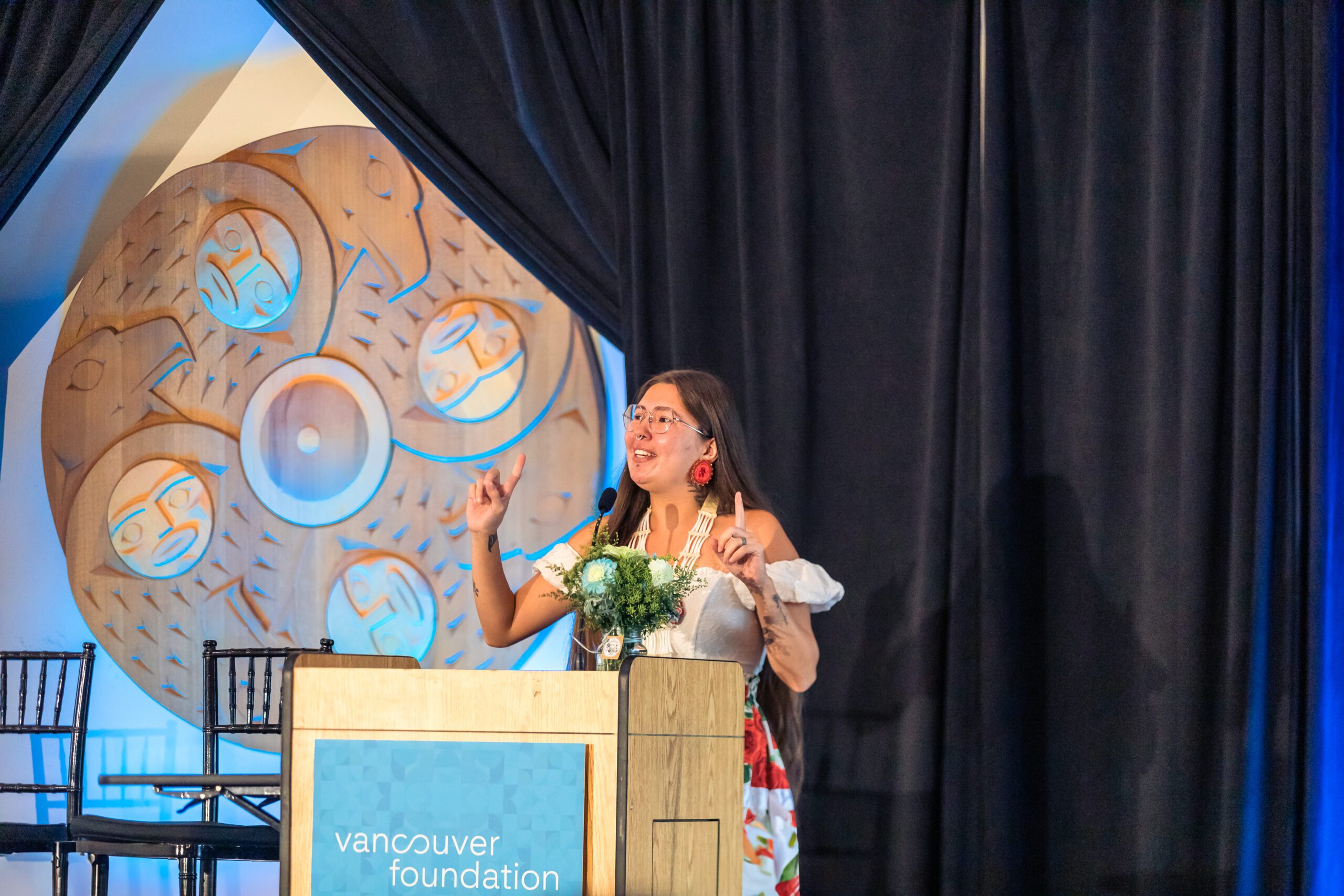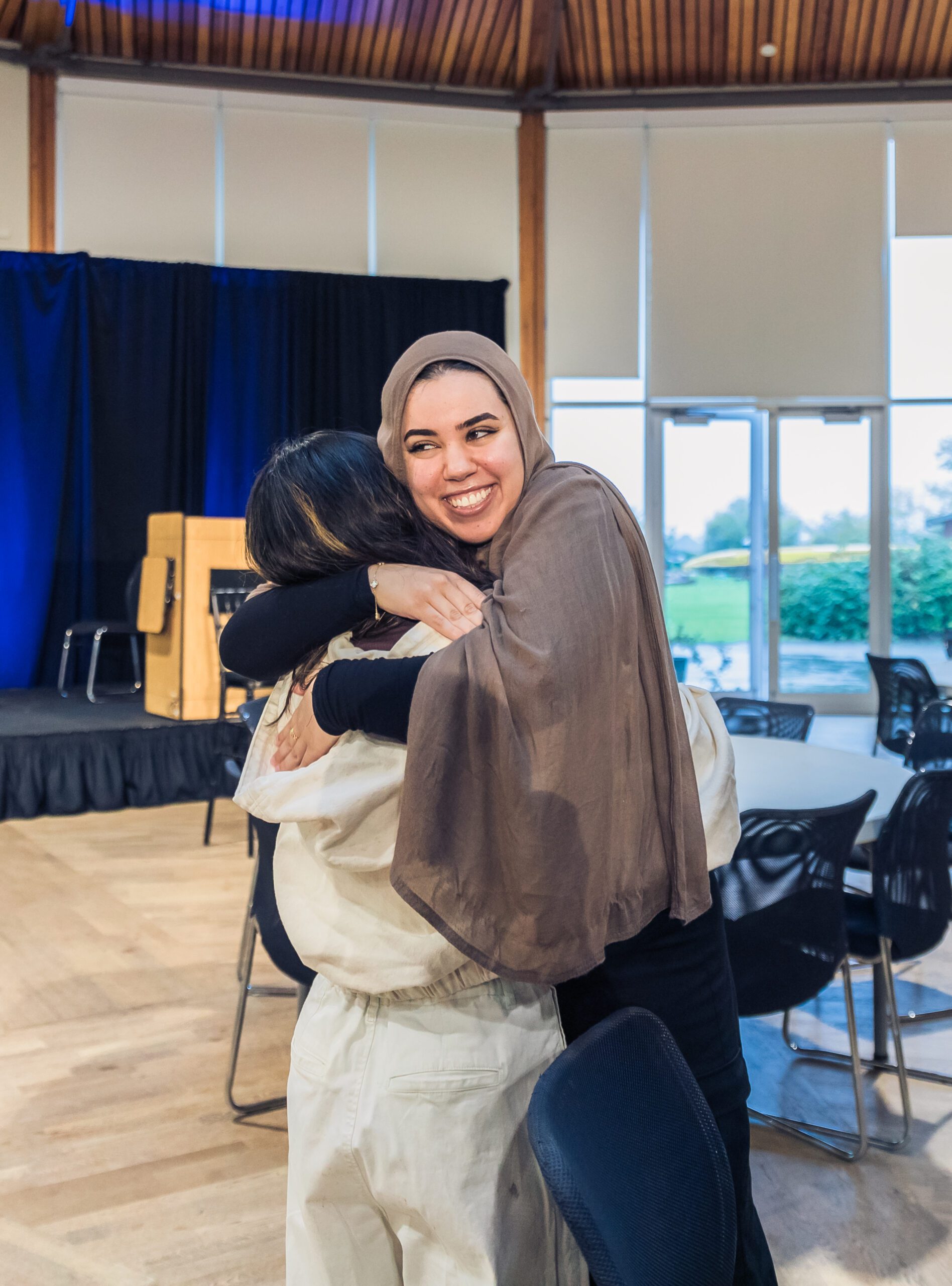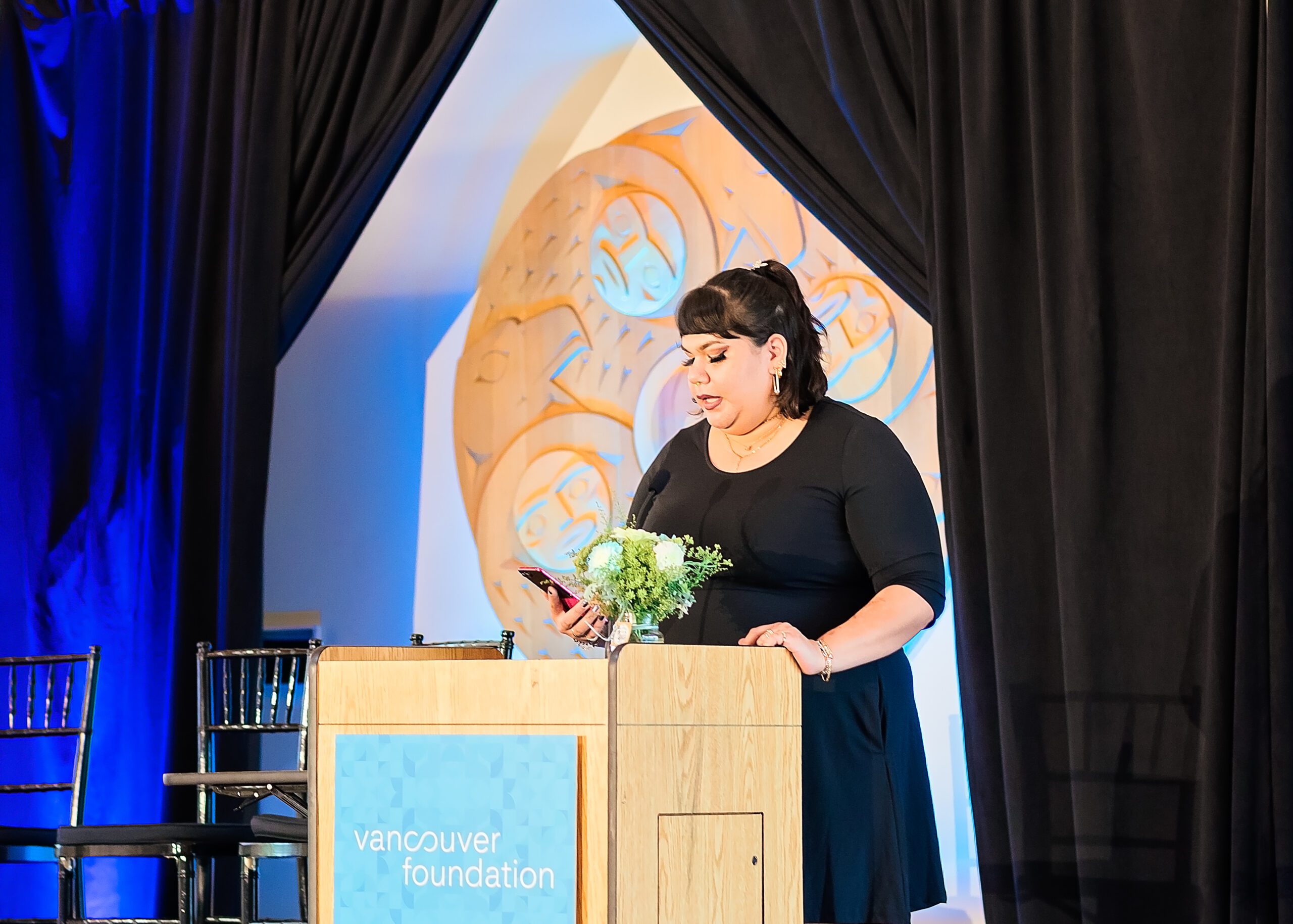
Young leaders pitch ideas for social change through Youth Policy Program
November 5, 2024
As the LEVEL Youth Policy Program wraps up this year, participants showcase their work through powerful presentations.
The LEVEL Youth Policy Program, an initiative run by Vancouver Foundation, is designed to empower Indigenous, racialized, immigrant, and refugee youth by building their leadership and advocacy skills. By offering leadership training and development, the program gives participants the tools they need to navigate public policy and advocate for changes that impact their communities. In 2024, the program ran from February to September, bringing together 16 participants aged 19-29 from across B.C.
Throughout the program, participants dedicated months of research and hard work to develop their policy projects. They were asked to identify a problem they’ve witnessed or experienced in their community and come up with a solution that can be addressed through public policy. On Sept. 26, the youth presented their policy projects at the Musqueam Cultural Centre. For many, the day was also a time to reflect on their personal growth.

Loretta Jeff-Combs delivers her policy presentation on the digital divide between Indigenous and non-Indigenous communities in B.C. She says there needs to be better broadband infrastructure development for Indigenous people in the province. Photo by Naybu Taw.
“I don’t think I’ve ever been supported as much as I have been by this group. And I know my worth and I feel like I’m going to walk away knowing that I am loved, I am respected,” said participant Loretta Jeff-Combs.
Her words underscored the deep bonds of friendship and mutual respect that had developed over the course of the program. Fatima Elmasry echoed these sentiments, explaining how it gave her more confidence.
“They [Vancouver Foundation] showed us we deserve more than what we think we deserve…We are experts. Our lived experiences make us qualified to know what we want and what is good for us and our communities.”
Inspired by this, Fatima is eager to continue her work. Her policy project is titled “Confronting Anti-Palestinian Racism: A Call to Action for Canada’s Immigration Service Sector.” It will address the systemic racism and cultural biases that marginalize Palestinians in Canada face, focusing on the immigration service sector.

Fatima Elmasry hugs fellow cohort member Khatira Daryabi before presentation practice at the Musqueam Cultural Pavilion. Photo by Naybu Taw.
“I feel excited and empowered about my next step of the journey. I feel like I can do this. I want to follow up on my policy”, she said.
Roberta Longclaws, whose policy ask was titled “Families United: Keeping Indigenous/BIPOC Families Together” revealed how the program accelerated her decision to get into social work.
“I’m probably going to pursue social work sooner than I thought,” she shared. “If I have social work under my belt I feel like I’ll be able to get more done because I would be listened to; they would take me seriously about what I want done.”
Throughout the day, participants reflect on how they will fight for change. Roberta expressed her passion for advocacy, especially around children in care.

Roberta Longclaws delivers her policy presentation about the disproportionate number of Indigenous and racialized youth in care. She says parents who are marginalized need better resources and support to keep their families together. Photo by Naybu Taw.
“I’m probably more passionate than when I started when it comes to kids in care… I know I’ve always wanted to fight for change but this [YPP program] has made it more serious in my brain, like I really need to be the change that I want to see,” she said.
The final event of the YPP 2024 cohort wasn’t just a conclusion, it was also a launchpad. Inspired by the day’s events, becoming aware of their growth, and impacted by the energy in the room, the cohort is ready to continue their fight for meaningful change.
Learn more about their policy projects and discover how you can support their work.

